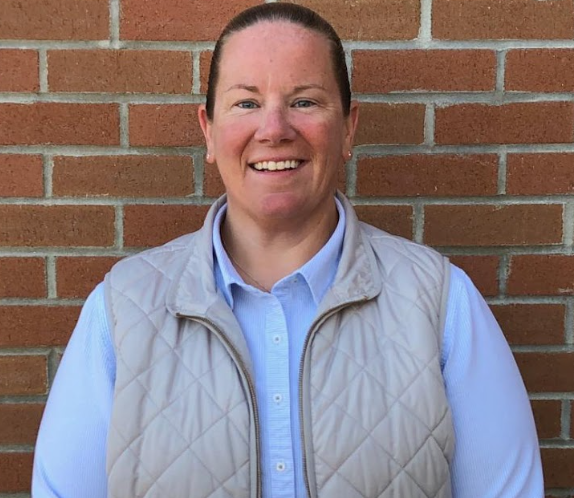Online: The Good, The Bad, and How to Stay Safe
February 7, 2018
The use of the Internet has exploded through the years. The use of the Internet can be for a variety of purposes; many of which can be extremely helpful such as for research and to gain new information. However, other purposes becoming more popular by the day can have dangers that are important for users to acknowledge and know how to avoid.
These popular uses of the Internet can include belonging to online dating sites, creating accounts in the endless pool of social media avenues, being exposed to cyberbullying, unknowingly coming across a predator and putting yourself in harms way, and/or being exposed to explicit content either on YouTube or even accidentally while searching for information on a completely different topic.
“No doubt, the Internet can be an extremely useful tool for young people,” says WebbMD. “But instant messaging, chat rooms, emails and social networking sites can also bring trouble – from cyberbullying to more serious Internet dangers, including exposure to predators.” It is important for parents and youngsters to be aware of all the potential dangers and to be equipped with tools/tips in order to be safe on the Internet.
According to www.covenanteyes.com, there are several main dangers that parents and youngsters need to be aware of when exploring the World Wide Web. The top dangers include exposure to explicit videos, photography or writing, cyberbullying, predators, gaming, social networks, and YouTube.
Data shows that more than 1 in 8 searches are of an explicit nature. Extensive exposure to content of such explicit nature, can have long term effects on young minds including having only casual relationships or mimicking behaviors seen online. Research shows that 20% of teens engage in some form of explicit behavior, which can be done on the Internet or on cell phones. Sending or receiving inappropriate pictures leaves the opportunity for so many things to go wrong. The pictures can be shared with others, which happens as often as every 1 in 5 teens and depending on the ages of those involved the photos can be considered a crime and criminal charges can be pressed leaving a youngster with a criminal record.
Cyberbullying is how kids manage to be mean to each other online. Data shows that 24% of teens have had something mean and untrue written about them online and 9% of teens report that they have been threatened to have their private life shared with everyone through social media. The effects of cyberbullying can be devastating. Cyberbullying can make a person feel like they are not even safe in their own home. It can create extremely low self esteem when someone is repeatedly picked on and constantly hears harsh words and usually from multiple people online. Depression can result from this constant state of being attacked personally, as well as anxiety created by the fear that rumors will spread quickly and that nothing will ever get better. There is also no one to witness the bullying or intervene to help the victim.
The Internet is also the most dangerous way for a child to come across a stranger or predator looking to harm them in some way including developing an inappropriate relationship or even kidnapping. The predator knows how to trick the young person into feeling special and giving up their personal information without realizing it. Data shows that 76% of predators are 26 years old or older, making any type of relationship inappropriate with a teen. Statistics show that 83% of victims were more than willing to meet an offender face to face, which is a scarily high number with serious and extremely dangerous effects.
Even though gaming online or console gaming can be fun and interactive, gaming has its dangers, too. Most of the games have inappropriate content, many including extreme violence and/or explicit crude language. Gaming also opens kids up to meeting even more strangers who may be looking to cause them harm. Research demonstrates that 82% of children are active gamers and that one third of these gamers play with people they have never met and do not know.
Social networks such as Facebook and Instagram can be a way for people to connect, but it is important that posts and pictures are monitored for appropriateness because what a child posts can have long term effects like not getting into a preferred college or getting a preferred job because of a foolish photo or inappropriate comment or wall post. Statistics show that 40% of teens have seen pictures of their peers drunk, passed out, or doing drugs. These pictures do not only affect those that posted them, but can influence a child looking at them to want to behave this way in order to gain attention or what they perceive as a boost in popularity.
YouTube and the ability to broadcast yourself is an extremely dangerous way of sharing videos online. It is the largest way to share videos, but guidelines are frequently broken and because 48 hours of videos are uploaded every minute it is impossible to monitor these videos to ensure that they meet Community Guidelines. These videos often are of explicit nature, have hidden meanings, and use foul language. Research demonstrates that over three billion videos are viewed every day on YouTube. That astronomical number means that the chance of kids not watching an inappropriate video, even if they were not searching for it, would be extremely small.
With all the existing dangers on the World Wide Web, it is crucial to provide tips on how to stay safe and avoid these dangers to parents, children, and even school personnel since schools today utilize the Internet and because dangers like cyberbullying could continue into the school environment from home from the previous night. The site www.safetynetkids.org.uk provides ten tips for keeping kids safe online. These ten tips include: 1) Don’t post any personal information online – like your address, email address or mobile number; 2) Think carefully before posting pictures or videos of yourself. Once it is out there, it is not yours anymore. It can be downloaded, saved, and shared; 3) Keep your privacy settings as high as possible; 4) Never give out your passwords; 5) Don’t befriend people you don’t know; 6) Don’t meet up with people you’ve met online and tell your parents about people suggesting you do; 7) Remember that not everyone online is who they say they are; 8) Think carefully about what you say before you post something online; 9) Respect other people’s views, even if you don’t agree with someone else’s views doesn’t mean you need to be rude, and 10) If you see something online that makes you feel uncomfortable, unsafe or worried: leave the website, turn off your computer if you want to, and tell a trusted adult immediately.
WebMD also provides many helpful tips for being safe online. Cyberbullying is typically not reported because kids do not want to lose their Internet rights if a parent sees this as the only solution. Instead parents should stay calm and first attempt to block the bully. Parents may need to involve the police though if physical threats are made against their child. Some more tips for protection against cyberbullying include keeping your passwords secure, block or ban bullies, set up new accounts and close accounts where bullying was taking place, keep proof, and remember not to respond or the bully will have reason to continue. For protection against predators, parents should be aware of any social network site their child is on and it should be an age appropriate site. Kids should not post their personal information including their full name, address, phone number, or name of their school. Kids also need to be made aware that the photos they post can actually give away their personal information if they are not careful about the photos they choose to post. It is also important to make sure to utilize built in privacy settings and make sure to only private message family and friends. Computers should be kept in a common spot in the house so monitoring is possible and parents should learn the acronyms and lingo used online. Any type of inappropriate advances or any form of bullying made online should be told to parents and reported to police. Another resource available is to call the CyberTipline (800-843-5678).
Living in a changing world of constant advances in technology definitely has many positive aspects to it; however the availability to kids of all ages can make for dangerous situations to arise. It is important to acknowledge that we are fortunate to live in a time where information on any topic is right at our fingertips, but at the same time we would be ignorant to not recognize that as a society we are responsible to be aware of the dangers that exist online and utilize the strategies that can be taken in order to be safe online.











